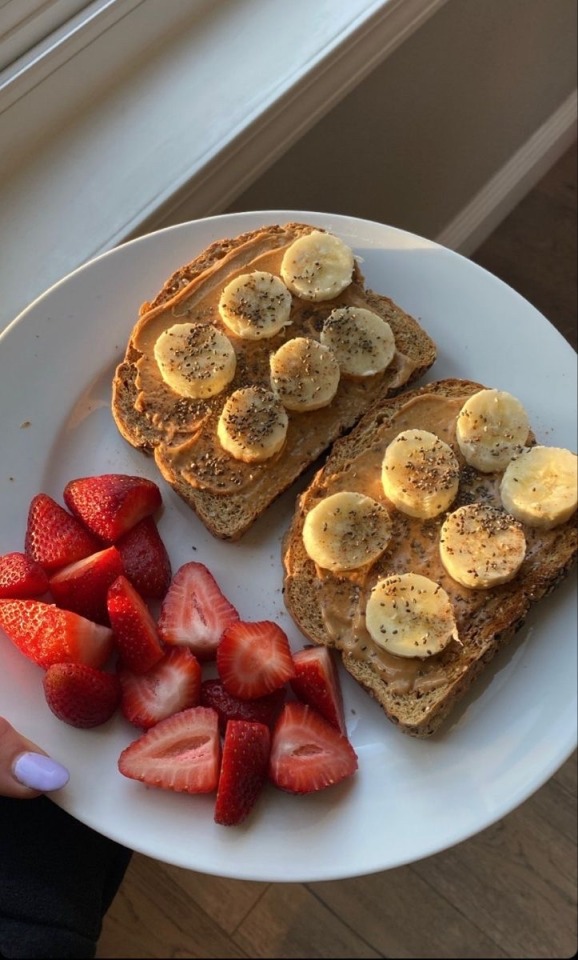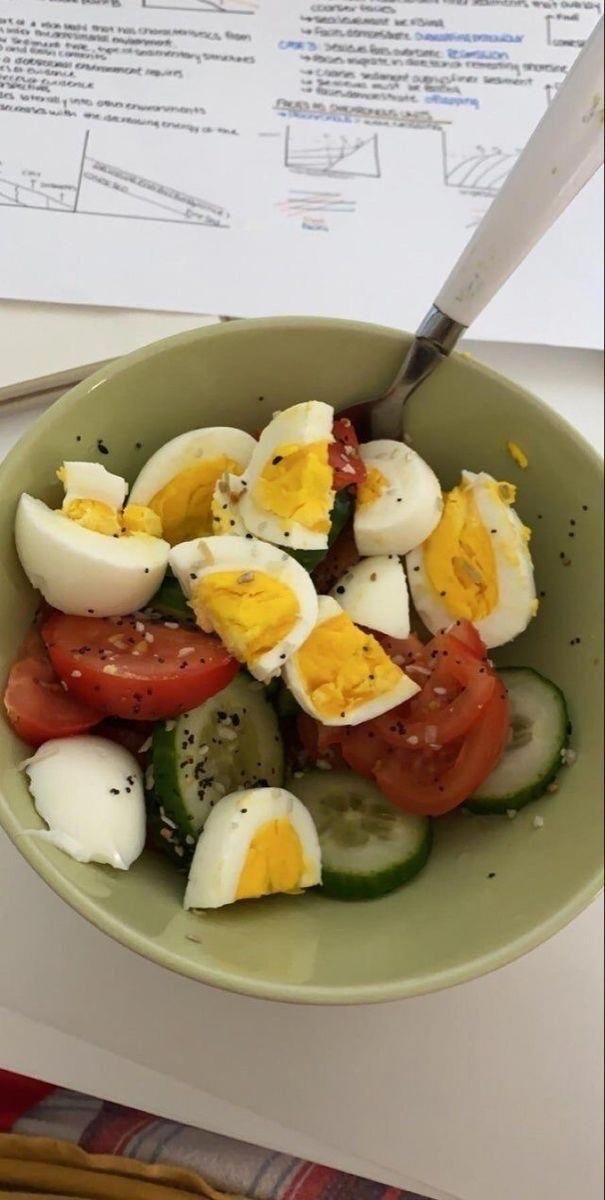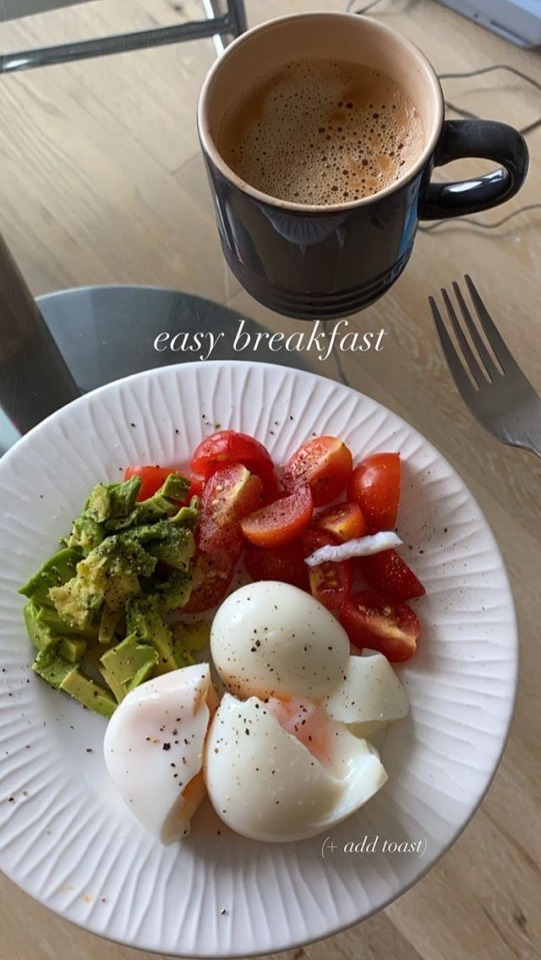Don't Try This Unless You Want To Massively Transform Your Life




Don't try this unless you want to massively transform your life
1. Get an alter ego, give them a bad ass name
2. Make a blue print for who they are, how they dress, talk, think, act figure out what their life is like and their routine etc.
3.start acting like them everyday
4. When you have a choice to make ask yourself "what would X do?
5. Give it a month and look at how you've reinvented your life
More Posts from Isis-of-the-moon and Others
10 signs that you're totally disorganized and how to fix it:
📓. Your notes are scattered everywhere – You have piles of papers, sticky notes, and notebooks, and you can’t find what you need.
Fix: Start by spending 10 minutes organizing what you need for the day n group everything by subject, and toss what you don’t need.
📓. You forget to pack your stuff the night before – You’re rushing in the morning, and you forget books, pens, or even your calculator.
Fix: Prepare your bag the night before. Lay out everything you need and check it before bed to avoid the morning scramble.
📓. You can't remember what subjects you have the next day – You keep checking your schedule last-minute and feel behind.
Fix: Write it on a visible spot—use a planner, whiteboard, or sticky notes to remind you of your schedule. Keep it somewhere you see every day.
📓. Your study materials are not separated by subject – You’re mixing up your revision notes for math, history, and science all in one place.
Fix: Use different folders or binders for each subject. If you don’t have that, color code your notes so it’s easier to grab what you need. ( I personally use binders for subjects with detailed notes like philosophy or french and normal plastic folders for other subject notes cuz I don't trust digital notes 🤫)
📓. You can’t find your previous exams or assignments or some past papes u did – You want to go over old exams, but you can't find them because they’re lost in a sea of papers.
Fix: Set up a folder for past exams and keep them organized by subject. You can even use digital apps to scan and save them.
📓. You end up studying the same chapter over and over – You keep revisiting the same material instead of moving on to what’s next.
Fix: Make a study checklist pleaaaase. List all topics you need to cover and cross them off as you go. Stick to the plan, even if you want to revisit things.
📓. You never know what your next task is – You jump from one thing to another without any clear direction, and everything starts to feel like a mess.
Fix: Create daily to-do lists and prioritize tasks. Break your study time into manageable chunks and u will feel productive
📓. You procrastinate organizing your study time – You think “I’ll organize later” and keep pushing it off until you’re overwhelmed.
Fix: Set aside 10 minutes every morning or evening to plan out your study session, even if it’s just a rough outline of what you’ll focus on.
📓. You keep putting things off until the last minute – You’re leaving study materials scattered until the exam is nearly here.
Fix: Start with the basics ,set small goals, like organizing one subject per day, to get back on track before you get too stressed.
📓. You end up cramming without any clear plan – You try to study everything in a rush, but it doesn’t make sense because you haven’t organized anything.
Fix: Use a timer (I highly recommend an app calls FLIP) put a goal for each 1h session and only focus on one thing at a time. This will help you study in chunks without feeling overwhelmed and understand more the topic u are studying .
@bloomzone


I can hear the birds on the roof!! it truly is spring!♡













Healthy Foods
Traits I’ve Noticed in Confident People




Disciplined - if a target is set, it is achieved
Speaking - Can speak multiple languages. Can express thoughts clearly even if vocabulary is limited. The listener understands their point.
Strong extroversion socially - can approach and talk to new people with ease, but also make them feel comfortable. Good at following up, asking questions and inserting little stories about themselves without exposing too much
Strong general knowledge / industry knowledge. They know what they’re talking about
Hard to please but not arrogant about it. They won’t readily accept a fact or opinion, even if the majority agrees - they’ll debate with it, think over it, play the devil’s advocate
Good posture
Strong set of principles and self control. There’s no shame in wanting to say, help someone, choose not to drink socially, buy a coffee for a poor person on the street; they don’t hesitate to do good deeds
Hygienic. Clean, groomed, well dressed, well maintained.
Observant and proactive at the same time. Can pick up on body language relatively easily - can sense discomfort or unease in someone and do something about it.
Have a strong sense of self identity. Can be opinionated but open to challenges.
STUDY SYSTEM : DAILY STUDY ROUTINE ( EXAM EDITION)


hii looves so this blog is all abt how to optimizing your day for peak academic performance. This four-part daily system is the exact routine used during exam season especially finals to consistently achieve top grades with minimal stress. While the routine may appear complex at first glance it is built upon simple, intuitive principles rooted in human biology and psychology. It is not only practical but highly effective when followed consistently. You’ll learn to structure your day around ur natural energy cycles, use tools to boost focus, and incorporate essential periods of rest and release to maintain motivation and productivity.

SECTION 1: UNDERSTANDING UR ENERGY RHYTHM
The routine is built around the concept of the circadian rhythm, your body’s natural energy cycle throughout the day. On a standard day for example :
Energy peaks shortly after waking typically around 6:00 AM.
Energy dips mid-afternoon often around 2:30 or 3:00 PM.
A secondary energy peak occurs in the evening approximately around 7:00 PM.
Energy tapers off as bedtime approaches.
This predictable fluctuation is key to optimizing your study schedule. The two energy peaks will be your core study sessions, while the dip will be used as a rest period, and the late-night wind-down becomes your release period or bedtime .

SECTION 2: THE MORNING STUDY SESSION (STUDY SESSION #1)
◜✧ Start Within One Hour of Waking Up
Your goal is to begin studying as soon as possible after waking, ideally within the first hour. Use the high energy of the morning to tackle your most challenging subjects.do ur morning routine quick as possible don't do intense workout or stuff like this cuz u will waste ur energy so always have a specific morning routine for days like these ! And u can workout go to the gym or whatever at the rest period !
Pre-Study Essentials:
1. Set Your Daily Goals (5 minutes)
Before starting, sit with a notebook or your computer and write down what you intend to accomplish. Be specific. Define exact tasks e.g. which past papers you’ll solve, which topics to review so u will be more organized during the day
2. Activate Focus with Three Optional Tools:
Caffeine — coffee, yerba mate, or tea to boost dopamine and adrenaline.
Cold Showers — a physiological wake-up that increases alertness (personally I don't do that lmao but if u can that's good !)
Focus Warm-up (1–2 minutes) — pick a point in your environment and concentrate on it intensely. This warms up your cognitive focus system before you start.
◜✧Deep Work Sprint Format
Commit to a 2–4 hour study block.
Use timed work intervals: e.g., 25–30 minutes of focused work followed by 5-minute breaks.
Use a visual timer to create urgency and focus. This serves as a “deadline generator,” helping you push harder and maintain hope by offering visible progress.
─ ⊹key principle: work Like a warrior
Study in focused sprints. The more intense your focus, the less time you’ll need to study. The idea is depth over duration not 12 hours of mediocre attention, but 2–4 hours of deep concentration.

SECTION 3: MIDDAY REST PERIOD
Timing: After First Study Block Ends (~Early Afternoon)
At this point in the day, your energy naturally dips. It’s essential to give yourself permission to rest. This period is not for distractions like Netflix, YouTube, or social media.
◜✧ Approved Activities:
Exercise or light sports
Socializing with friends/family
Taking a walk, especially outdoors
Napping (ideal: 20 minutes)
The goal here is active recovery choose activities that contrast focused work. Avoid anything with dopamine stimulation that mimics your “vices” or release behaviors.so this break allows your mind to reset, preventing burnout and increasing productivity in the next session.

SECTION 4: EVENING STUDY SESSION (STUDY SESSION #2)
Timing: During the Second Energy Peak (~6:00–8:00 PM)
Return for your second battle. This session is similar in structure to the morning study session, but with a few differences:
◜✧ Change Your Environment:
Consider studying in a different location e.g., library, a new room, or another productive setting. (Personally I move from my desk to the guest room cuz it's far from family chaotic activities ifykyk )
This provides novelty and reduces boredom, which helps counteract distractions that are more likely to arise in the evening.
◜✧ Eliminate Distractions:
If possible, leave your phone behind take that shit in another room
Create a space where your brain associates the environment with productivity.
◜✧ Study Format:
Continue using timed sprints.
Session length: 2 to 3 hours, depending on your focus reserves.
The goal is to extract one final productive effort from your remaining focus reserves for the day.

SECTION 5: NIGHTLY RELEASE PERIOD
Timing: 1–2 Hours Before Bed
This period is crucial and often overlooked. It functions as your psychological release valve a scheduled time for indulging in your “vices” or desires.
◜✧ why it matter
Without a controlled release period, distractions tend to creep in throughout the day. When you tell yourself you’ll “resist” TikTok or YouTube for three straight weeks during exams, it almost always backfires. You end up scattering distractions across the day, killing momentum and u will feel like shit
◜✧ so solution:
Contain those activities to this specific window. Give yourself full permission to indulge whether it's gaming, scrolling, or Netflix. The only rule: Only do it at night.
◜✧ psychological benefit:
You’ll find it easier to say “no” to distractions earlier in the day when you know you can give in later. It reduces the mental burden of constant suppression.
Caution:
This is not a prescription to develop new addictions or deepen existing ones. If you don’t feel the need for this release, skip it . But if you’re honest with yourself about your impulses, this structure helps you keep them in check.

◜✧ ADAPTATION AND FLEXIBILITY
✧ Everyone has a unique biology. Some wake up at 5:00 AM, others at noon.
✧ Adjust the energy curve and study blocks to match your personal circadian rhythm.
✧ This is a template, not a strict prescription. Principles stay constant, execution varies.
KEY TAKEAWAYS:
🗝️ Two deep-focus sessions aligned with your body’s energy peaks yield greater results than dragging your mind across a 12-hour marathon.
🗝️ Midday rest and nightly release are components of a sustainable routine.
🗝️ Use tools like caffeine, timers, environment changes, and goal setting to maintain momentum and focus.
🗝️ Structure breeds freedom. When your day is mapped with intention, your brain is free to focus trust me with this one
✧ This daily routine is not about rigid hours or perfection. It’s about aligning your habits with your biology and respecting your mental bandwidth. When implemented consistently, this system transforms exam season from a stressful grind into an enjoyable and productive challenge.Now take what you've learned and design your daily routine with intention ✧

@bloomzone
-
 angryballoonbasement liked this · 2 months ago
angryballoonbasement liked this · 2 months ago -
 romanizediaries liked this · 3 months ago
romanizediaries liked this · 3 months ago -
 moonsx29 liked this · 3 months ago
moonsx29 liked this · 3 months ago -
 nazonofrog liked this · 4 months ago
nazonofrog liked this · 4 months ago -
 what-i-needed-to-hear reblogged this · 5 months ago
what-i-needed-to-hear reblogged this · 5 months ago -
 n0eonheart liked this · 5 months ago
n0eonheart liked this · 5 months ago -
 neeckee-eevee liked this · 5 months ago
neeckee-eevee liked this · 5 months ago -
 joliebiijou liked this · 5 months ago
joliebiijou liked this · 5 months ago -
 xmisslady liked this · 5 months ago
xmisslady liked this · 5 months ago -
 essenceofrose reblogged this · 5 months ago
essenceofrose reblogged this · 5 months ago -
 essenceofrose liked this · 5 months ago
essenceofrose liked this · 5 months ago -
 shadydreameryouth liked this · 5 months ago
shadydreameryouth liked this · 5 months ago -
 jennyyyeeettt liked this · 5 months ago
jennyyyeeettt liked this · 5 months ago -
 arianachos liked this · 5 months ago
arianachos liked this · 5 months ago -
 tranquilstudy reblogged this · 5 months ago
tranquilstudy reblogged this · 5 months ago -
 ultramarineiris liked this · 5 months ago
ultramarineiris liked this · 5 months ago -
 xoxo-lenah liked this · 5 months ago
xoxo-lenah liked this · 5 months ago -
 noodlesoul liked this · 5 months ago
noodlesoul liked this · 5 months ago -
 sososoprettyyy liked this · 6 months ago
sososoprettyyy liked this · 6 months ago -
 curingma liked this · 6 months ago
curingma liked this · 6 months ago -
 buttermilkcafe liked this · 6 months ago
buttermilkcafe liked this · 6 months ago -
 peachpumpkinpancake liked this · 6 months ago
peachpumpkinpancake liked this · 6 months ago -
 energyofthegoddess liked this · 6 months ago
energyofthegoddess liked this · 6 months ago -
 faeplumi reblogged this · 6 months ago
faeplumi reblogged this · 6 months ago -
 faeplumi liked this · 6 months ago
faeplumi liked this · 6 months ago -
 jijkook liked this · 6 months ago
jijkook liked this · 6 months ago -
 st1arie liked this · 7 months ago
st1arie liked this · 7 months ago -
 seimurakami liked this · 7 months ago
seimurakami liked this · 7 months ago -
 internette111 liked this · 7 months ago
internette111 liked this · 7 months ago -
 sensuelledoll liked this · 7 months ago
sensuelledoll liked this · 7 months ago -
 chanduuu reblogged this · 7 months ago
chanduuu reblogged this · 7 months ago -
 chanduuu liked this · 7 months ago
chanduuu liked this · 7 months ago -
 iamcanary liked this · 7 months ago
iamcanary liked this · 7 months ago -
 fentydrip liked this · 7 months ago
fentydrip liked this · 7 months ago -
 8211997 reblogged this · 7 months ago
8211997 reblogged this · 7 months ago -
 aloochio liked this · 7 months ago
aloochio liked this · 7 months ago -
 carmensapientia reblogged this · 7 months ago
carmensapientia reblogged this · 7 months ago -
 carmensapientia liked this · 7 months ago
carmensapientia liked this · 7 months ago -
 liartogirls reblogged this · 7 months ago
liartogirls reblogged this · 7 months ago -
 zephyr-ig liked this · 7 months ago
zephyr-ig liked this · 7 months ago -
 lethalcherry007 reblogged this · 7 months ago
lethalcherry007 reblogged this · 7 months ago -
 stanuser liked this · 7 months ago
stanuser liked this · 7 months ago -
 seventies-arcana liked this · 7 months ago
seventies-arcana liked this · 7 months ago -
 avandeurx liked this · 8 months ago
avandeurx liked this · 8 months ago -
 originaldreamturtle liked this · 8 months ago
originaldreamturtle liked this · 8 months ago -
 alay-505 liked this · 8 months ago
alay-505 liked this · 8 months ago -
 d1eam liked this · 8 months ago
d1eam liked this · 8 months ago -
 inmaidreamreality liked this · 8 months ago
inmaidreamreality liked this · 8 months ago
